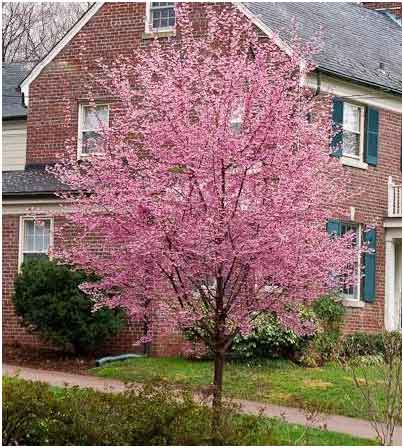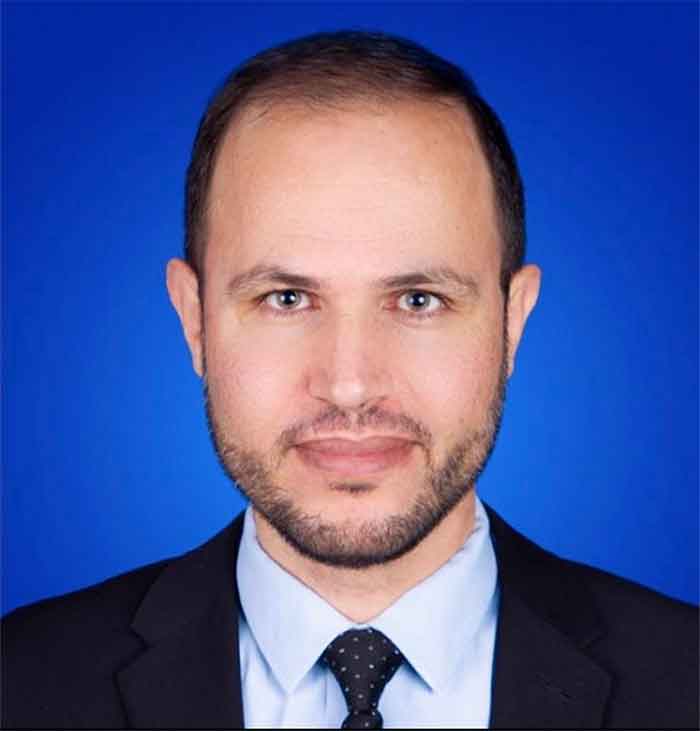
Jamal Uddin had lived an ordinary and extraordinary life at the same time. His life story is about hard work, determination, and resilience in living the life of an immigrant in New York City. “Mr. Uddin was born in Chittagong, Bangladesh, where the Karnaphuli River flows into the Bay of Bengal. He was not poor, but he knew what it was like to share a small bowl of rice with his brother as his only meal before school. After his parents died, he immigrated to the United States, where he had an uncle,” writes Nicholas Kulish in the New York Times where Jamal Uddin was featured in a recent article. Sadly, Jamal Uddin is no more. Coronavirus has taken him away from his loved ones as he was fighting for his life in a Brooklyn hospital’s intensive care unit. He was 68-years-old. He left behind his wife Jesmin and son Shehran. Prior to his death after a return trip from the Netherlands, Jamal Uddin had planted a weeping cherry tree in his yard in the Bay Ridge area in Brooklyn, New York. It is still springtime in New York, and the weeping cherry tree’s pendulant branches are most likely covered with pink flowers. “Jesmin and Shehran found solace in a pair of birds nesting in the weeping cherry tree Mr. Uddin had planted, flowering pale pink as they mourned,” the NY Times piece said.
Jamal Uddin came to New York City, a place typically made by immigrants from all over the world. People from different ethnic communities speak in more than 18 different languages. NYC is the most diverse city in the US, and is also known as the city that never sleeps. The first few years in America, Jamal Uddin’s life as an immigrant was nothing amazing as it is typical of immigrants where they have to do extra hard work just to make ends meet. Outwardly, his life resembled every immigrant’s existence, as he was also very young who was far away from family in this distant land. He had to work very hard just to survive. But he did not mind the hardship because he never forgot that his dream of success had brought him there. He was determined to make it big in the city among 5.5 million of immigrants in the US and thus became a part of the immigrant labor force.
With a zest for life and tenacity to succeed, there was no looking back for him as his future depended on the kind of decisions he took. He had worked at a ribbon factory to put him through high school. Eventually, he graduated from college. He had found a career helping those with H.I.V/AIDS, a devastating and deadly disease. A lot of people tend to shield them while accepting such a job because in every society there is stigma that exists around HIV and AIDS. “A neatly dressed man who favored sports jackets with an open collar, Mr. Uddin worked as a supervisor at the city’s H.I.V./AIDS Services Administration and was active in the union there.” An HIV positive diagnosis can be a life-changing decision for anyone. Jamal Uddin in his job had offered support by reassuring people who got infected with the virus that HIV is a manageable condition such as diabetes. He counselled them how they can stay healthy while living with HIV. For a treatment plan he advised HIV patients how to keep the virus under control and prevent their infection from progressing to full-blown AIDS. He was always available who sought his help, and his door was open to all who came in through it.
As the years went on Jamal Uddin wanted his personal and unique life’s journey to come full circle. He decided that it was time to settle down and start a family. When he had felt financially stable he went back to Bangladesh, and met a young woman named Jesmin. They got married and started their life in New York. As newlyweds, they had perhaps enjoyed all the perks that the city has to offer. On some days, if they could take some time off from work, they must have toured the city, visited the historical landmarks in and around the city. They must have feasted on ethnic food, and experienced the brutal New York winter weather together. They met new people, bought a house, and became part of a community. Jesmin recalls, “As newlyweds in New York they would drive around the city in his Toyota Starlet, going to movies or parks.” At first it must have taken some work in getting Jesmin through the cultural shock, as Jamal Uddin had the actual experience of living here. Then their son Shehran was born. Together they had dreamt of a better future for them and their son.
The years went by very quickly, and everything was fine and dandy with the family until coronavirus had started to ravage New York City. When Jamal Uddin developed symptoms, initially, he was not able to get tested for coronavirus as there were not enough testing kits available. His condition worsened and his family bought an oxygen machine to check his oxygen level. It was dangerously low. In a couple of days his illness weakened even more. He was also diabetic, therefore, his condition deteriorated very rapidly. An ambulance was called in. When the paramedics arrived, Jesmin went to gather all of his medications to be brought to the emergency room. By then Jamal Uddin was already getting into the ambulance and the medics did not allow her to go near him. Jesmin told him to fight, standing outside the front door of their house. That was the last she saw him alive.
Jamal Uddin’s case was more complex than many other corona patients as he needed dialysis badly. But the Brooklyn hospital where he was taken was filled with corona patients. Doctors there were overwhelmed with the surge of new patients coming in every hour of the day. They delayed the dialyses even after repeated insistence from his family. Jamal Uddin’s brother in-law is a doctor and he had kept notes on the communication between the attending physicians that was later obtained by the New York Times with his family’s permission. From a Times investigation it was later established that there was gross negligence by the hospital staff in getting him fitted with a dialysis machine. It was scheduled to be done the next day, but the severe damage to his kidneys was already done. His doctors in the ICU had some lapse in communication between different people who were involved in his care. Ultimately, that had cost him his life. If Jamal Uddin could hold on a little longer then the dialysis perhaps would have saved his life. That is what the family firmly believes.
The newspapers and television channels keep on updating endless stories such as Jamal Uddin’s since the pandemic had started to raze through the US cities. Emergency room doctors aren’t always making the right decision about each case, and lose sight in prioritizing each patient’s individual need in order to give him/her the best possible treatment. Such crucial decisions often are a matter of life and death. Jamal Uddin’s life was hanging in a limbo while the doctors took their time in what to do in his case. The ER doctors are overworked, under a lot of stress, and scared for their own lives as well. But sadly, that is very little comfort to the family members who are left behind to mourn.
Jamal Uddin’s son Shehran will start Law School in the fall at CUNY. His father who loved to travel around the world with his family won’t be there to see him off to Law School or ever be a part of his life. But the weeping willow, a remembrance tree planted by Jamal Uddin will somehow benefit the present and future generations.
Jamal Uddin has taken a different journey now, a journey to the afterlife. The weeping cherry tree will stand as a witness to his life and bear his memory. Each spring the beautiful leaves will represent balance, harmony, and growth which human beings experience through life after the death of a loved one. Slowly they learn how to weather the storms and life’s multiple challenges. As it happens after the mourning period, Jamal Uddin’s family will have to be able to let go of the pain, and carve out a different kind of life in order to continue living.
It now seems ironic that Jamal Uddin perhaps had an eerie premonition when he had planted the weeping cherry that someday this tree will become very emblematic to his family in remembering him. The tree now will provide them strength, and a way to identify it in connection with the afterlife. Every spring, its dramatic appearance and peaceful presence will be incomparable. With its ground sweeping branches, slender and long leaves and soft pink flowers, the weeping cherry will be a remembrance tree for the family. The branches will droop with elegant whimsy as it continues to grow. Seeing it in full bloom, perhaps Jesmin and Shehran will remember Jamal Uddin planting the tree. They will keep that memory in present every time they view it. The beautiful blooming pink weeping cherry will grow in his honor, and it will be a special place to visit him. It will share their sorrow as its name has come to symbolize their pain. That would be a fitting memorial to Jamal Uddin.
Zeenat Khan writes from Maryland, USA
SIGN UP FOR COUNTERCURRENTS DAILY NEWS LETTER















































